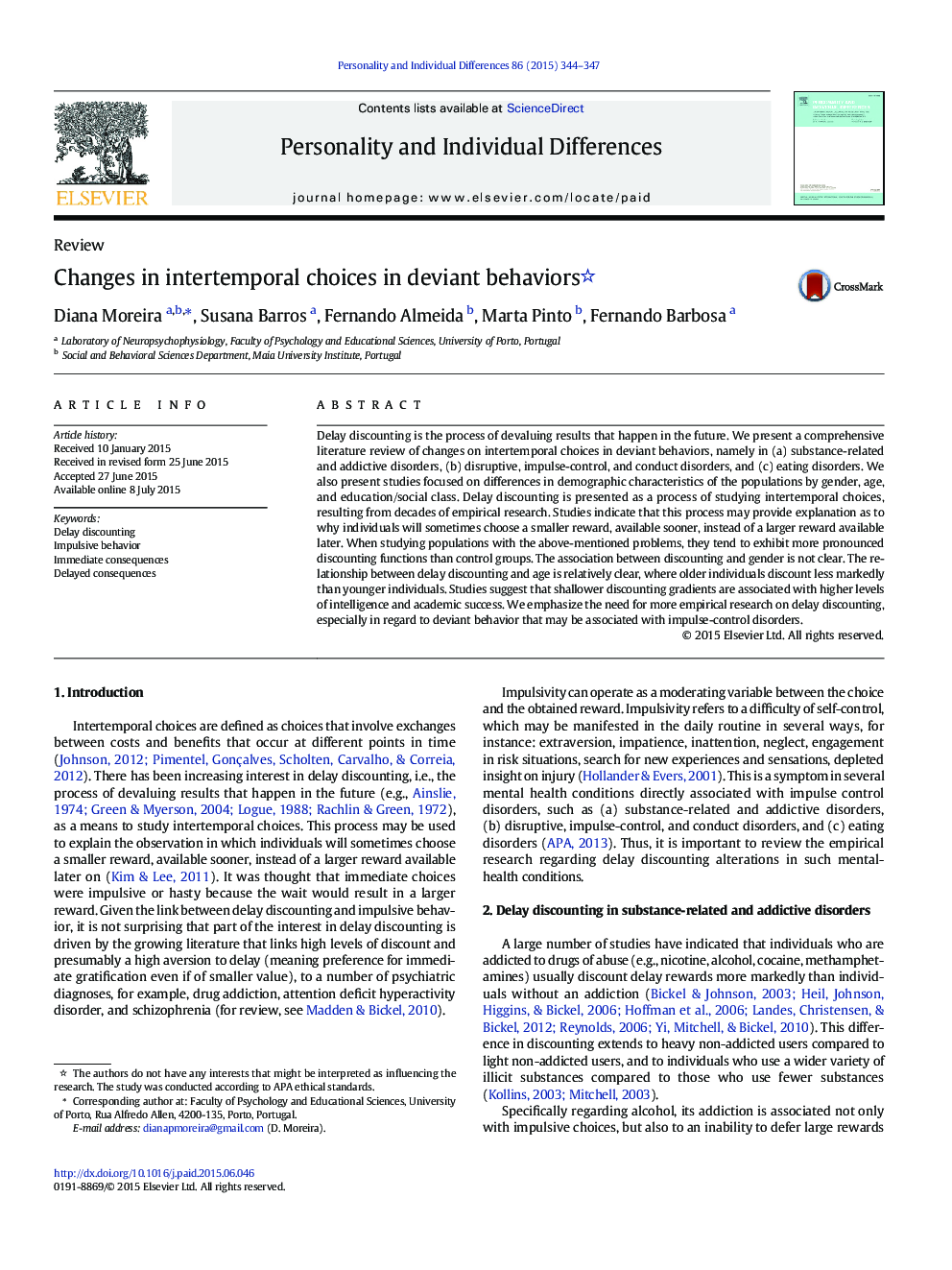| Article ID | Journal | Published Year | Pages | File Type |
|---|---|---|---|---|
| 889945 | Personality and Individual Differences | 2015 | 4 Pages |
•Literature review of changes on intertemporal choices in impulse-control disorders•Increased delay discounting in addiction and eating disorders•Increased delayed discounting in disruptive and conduct disorders•Gender, age, education and socio-cultural differences in delay discounting
Delay discounting is the process of devaluing results that happen in the future. We present a comprehensive literature review of changes on intertemporal choices in deviant behaviors, namely in (a) substance-related and addictive disorders, (b) disruptive, impulse-control, and conduct disorders, and (c) eating disorders. We also present studies focused on differences in demographic characteristics of the populations by gender, age, and education/social class. Delay discounting is presented as a process of studying intertemporal choices, resulting from decades of empirical research. Studies indicate that this process may provide explanation as to why individuals will sometimes choose a smaller reward, available sooner, instead of a larger reward available later. When studying populations with the above-mentioned problems, they tend to exhibit more pronounced discounting functions than control groups. The association between discounting and gender is not clear. The relationship between delay discounting and age is relatively clear, where older individuals discount less markedly than younger individuals. Studies suggest that shallower discounting gradients are associated with higher levels of intelligence and academic success. We emphasize the need for more empirical research on delay discounting, especially in regard to deviant behavior that may be associated with impulse-control disorders.
